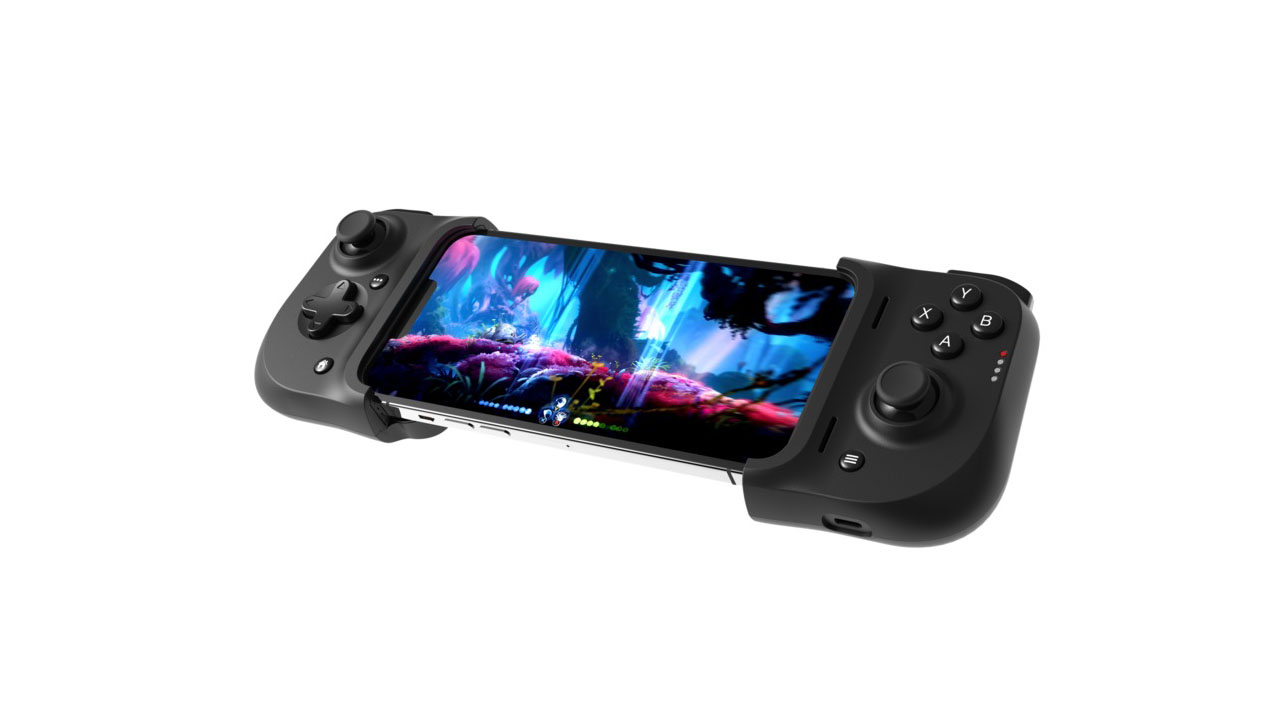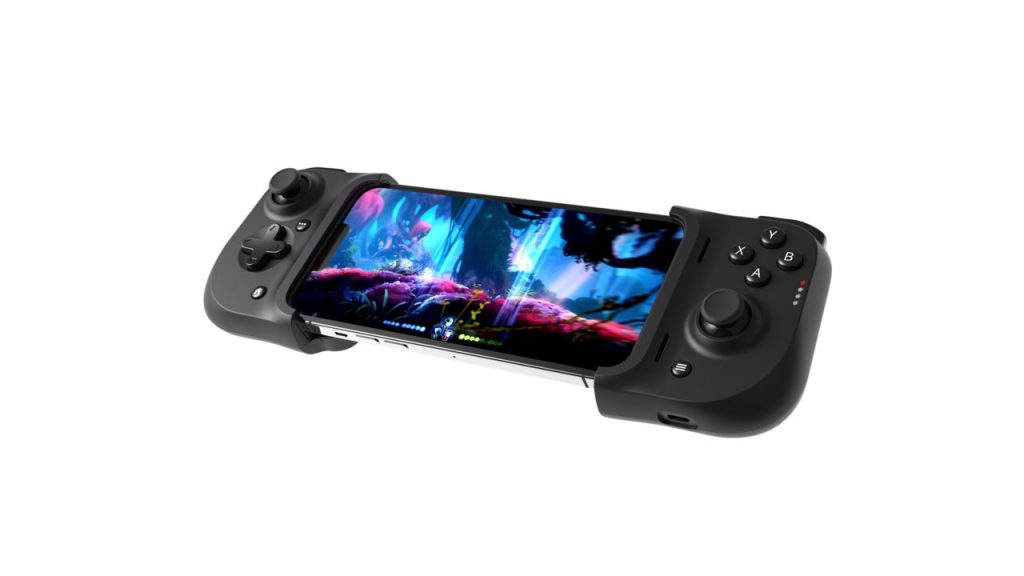
Mobile gaming has become fairly hot over the past few years, culminating with the ability to play Fortnite on pretty much anything you’d have with you at any moment. Seeing the huge potential in offering controllers for phones, many peripheral manufacturers rushed to create a half-way decent controller that worked with Smartphones and Tablets, but none have been able to cement themselves as the go-to product. Manufacturers like SteelSeries and Hori have previously made mobile dedicated bluetooth controllers but they never really caught on, and now that you can easily sync a PS4/5/Xbox controller to your phone they’ve mostly become obsolete. Gamevice has made a handheld that seeks to fill this void.
Gamevice
Manufacturer: Gamevice
Platforms: iPhone (Reviewed), iPad, Android
Price: $49.95 USD (Android), $59.95 (iPhone), $99.95 (iPad)
The Gamevice features full sized console quality thumbsticks, as well as console quality face buttons, and some surprisingly decent triggers. They’re not quite as good as they are on an Xbox or PlayStation controller, but they feel nice and work pretty well.
I played a few different games from Apple Arcade, as well as a few other popular games available on mobile such as everyone’s favorite femboy collection simulator Genshin Impact – as well as everyone’s favorite game to talk shit about, the monetarily predatory and morally horrendous cash-in Diablo Immortal.
Both games felt drastically improved using the Gamevice controller, as extended sessions were actually encouraged by using a “real” controller over suffering with the on-screen touch controls.
While there’s an argument to be made that you can achieve a similar experience simply by syncing a controller via bluetooth, the one problem those controllers face is how far your phone is away from your face.
The Gamevice solves that problem as your phone is comfortably right in the center of your hands, which is a big advantage it has over other controllers that have a fold-out phone holder that mounts your phone above the controller. This adds an uncomfortable amount of front weight which quickly weighs on your wrists, actively increasing hand fatigue the longer you play.
With the Gamevice, I never felt tired of playing games physically, the main reason I would stop playing was because I had hit points where I was ready to do something else so I’d exit out and put the device down.
I prefer the functionality of the Gamevice in comparison to it’s largest competitor – the Backbone. Gamevice folds up into a nice tidy little square shape, instead of being an extra wide controller with an empty rail where the phone would go. This makes it far easier to throw in a bag, as it’ll fit in larger pants pockets or a smaller backpack pouch than it’s larger competitor.
If I had any complaints about the Gamevice, it’s the necessity to take my Magsafe case off every single time I want to use it. It’s a minor thing to gripe about, but as much as I like my Gear4 Crystal Palace case, I feel like the more I remove it, the weaker it gets and the casing starts to get flimsy.
Thankfully, it looks like Gamevice has already thought ahead and remedied that complaint with their new model, the Gamevice Flex. Perhaps we’ll be able to take a look at one of those soon.
All in all, the Gamevice is a fantastic product for people who mainly play games on their phones. Not only do a lot of apps natively work with it, but it also has support for all of the streaming game services, including Xbox Cloud Streaming, Geforce Now, Google Stadia, and Amazon Luna.
There’s even a Gamevice Live hub app you can install that will take you to different displayed games on their respective service, which is a nice touch if you’re looking for new games to check out – but it’s ultimately just an app that gets in the way as you can just as easily go launch whatever you want without using their app.
If you thought this device looked familiar from the pictures, you’re correct – this device is almost a carbon copy of the Razer Kishi.
The notable differences are the lack of branding on the left side, the slightly different directional pad, the color coded face buttons, and the cheaper price tag. All and all, I see no reason not to save yourself a few bucks unless you’re just a big fan of the bigger name brand product.
We did our Gamevice review with a retail unit provided by Gamevice. You can find additional information about Niche Gamer’s review/ethics policy here.
